Pop culture weekend (Aug. 18): I can't watch bad things happen to fictional kids anymore.
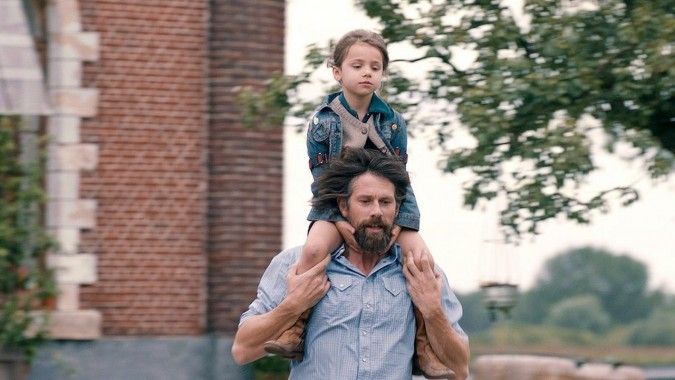
Hello, everyone! Every week, I send out a discussion post where I tell you what I've been checking out, and paid subscribers can chat about what their pop culture weekend looks like. This week, since I never landed on a regular newsletter I liked, and I did really end up liking this one, I've sent it out to everybody – but comments are still only open to paying subscribers, and I hope you folks will tell me what you're reading or playing or watching or listening to in comments.
Meanwhile, here's a little something I've been thinking about, spurred by some movie watching this week and the fact that I'm seeing the reissue of Oldboy on Saturday!
In May, I rewatched Stoker, one of my favorite Park Chan-wook movies, so I could record an episode of Blank Check on the film. I was having a blast with the film until a pivotal flashback scene that reveals a crucial part of backstory – and that involves the death of a child. Oh no, I thought. But I have a baby now. What might happen to them???
Now, the death of the child in Stoker is so baroque and over the top that it didn't bother me for more than a few shots. But the thorn was still wedged in my psyche, driving deeper and deeper. What if my baby ran afoul of a child sociopath? I'd better make sure they never leave the house.
Before we started recording, my friend David Sims (who co-hosts the podcast) mentioned that he'd been having trouble with how much child death and/or endangerment is present in Park's movies. David, like me, is a fairly recent parent , and I could just about imagine the ways in which having to watch all of Park's movies in such rapid succession might have done a number on him. I adore Park, but after Stoker, I resolved to set some of my favorite movies of his aside until... well, maybe until I can enjoy them responsibly with my kid. In 20 years. No. 30. Just to be safe.
(Sidebar: Park is a very devoted dad to his daughter and talks frequently of how he considers what she might like to see before embarking on various projects, which is an incredibly sweet thing for him to do and also unbelievably fucked up when you think about what some of his movies depict. Fortunately, Oldboy is not on the "movies Park Chan-wook made for his daughter" list, a fact that will relieve you if you've ever seen the film or just know about its most famous twist.)
Libby and I are doing our final preparations for the country music movies episode of Screen Drafts, and one of the last films we had to catch up with was The Broken Circle Breakdown, a 2012 Belgian film from director Felix van Groeningen that is a.) a minor masterpiece and b.) probably the sort of thing that should be illegal for parents to watch within 70 years of their child being born. I had seen the film when it came out in the US, but Libby had not, and roughly 10 minutes in, I told her we could stop watching if she wanted. I would be able to nominate it for the list based on my memories of it from back when. But we powered through.
To call Broken Circle Breakdown harrowing is an understatement. The very first scenes of the film feature a 6-year-old girl in a cancer ward, and things only get worse from there. Told in non-linear fashion, the film traces the relationship of the girl's parents from when they first meet to their struggles after the girl's illness. It also follows the life of the girl from when her mother realizes she's pregnant to those moments in the hospital. And, way in the background, it follows the growing success of the bluegrass band the girl's parents front. As their life falls apart, the band grows in esteem and success, playing bigger and bigger venues. The use of non-linear storytelling could feel trite, especially as van Groeningen smashes the happiest moments of their lives up against the saddest, but I think the non-linearity is the only way to keep the film from feeling manipulative and exploitative, as stories about children who become sick or die so often can.
What I realized watching the movie is that the death of a child still seems so purely theoretical to me. I understand that children, even some younger than my 9-month-old, die every day. I understand that every one of those deaths leaves someone scarred and haunted, a howling void of this should not have happened that we cast about for something to fill, whether it be religion or hard-headed logic about the inevitability of death or something else entirely.
When I would watch movies featuring child death and endangerment before I became a parent, I would approach those scenes with a sort of "Oh, hey, look, a kid died. That's sad" detachment. Now that I am a parent, that detachment is harder to achieve, and I suffered right alongside the couple in Broken Circle, imagining how gutting it would be to lose my child.
Yet Broken Circle also underscored for me that what I'm sad about isn't just the thought of my child dying before I do – though that is an omnipresent fear that I can never shake – but the thought of my child dying at all. I'm certainly not that excited to die, but I think I've come to a place where I realize that, yeah, it will happen to me, too. But my kid? No, my kid is going to live forever. After all, if they outlive me (which is how this is supposed to work), then from my point-of-view, they will have achieved immortality because I will (probably) never know what happened to them after I died. I can only assume they will feel the same about their own children, should they choose to have them someday.
When my child was born, they spent the first week of their lives in the NICU. The reason for this ultimately wasn't that serious – they came about a month earlier than their due date, and their lungs just needed a couple seconds to catch up – and they were soon home with us. In the short period of time Libby and I spent shuttling between the hospital and our apartment, trying to make things ready for a baby who arrived earlier than anticipated, we developed a joke as a coping mechanism. Yeah, the baby wasn't with us then, but they were going to have 70 to 90 years on this planet, which they were at the very start of. If we would start to get worried or sad about the fact that our child still wasn't coming home with us, one of us would just say, "70 to 90 years" in the gruff, demonic voice we had assigned to the baby in the womb (don't ask), and then all would seem to be well. It was a promise we were making not just to each other but to the kid, and it's a promise that the odds are in favor of. But the odds don't always pan out. To constantly remember that is a natural state of parenthood, I'm realizing.
The longer our baby is home with us, the more that first week in the NICU fades into a blur far behind us. When they are 10, 20, 30 years old, I will have so many more memories of them to crowd out those first, stressful few days. I already do.
And yet...
The circumstances of my baby's birth were panic-inducing. We expected to have longer, and suddenly, we didn't have any time, and then, the doctors were telling us the baby had to be born now and by Caesarean. They wheeled Libby into an operating room a little after 5 in the morning, and they let me come in and sit by a stool near her head. An enormous screen blocked us from seeing where the doctor was performing the operation, and for a long while, we could only hear the sounds of what they were doing, their occasional exhortations about how they were having trouble finding our child. (We would later learn the baby was just in shock from a very rude awakening, as we all would be.)
Then we became aware, somehow, that the baby was out, in the room with us, but we couldn't see or hear them. The cry we had been waiting for didn't arrive. I held Libby's hand. She screwed her eyes shut as tightly as she could, and I watched a single tear squeeze its way out of one of them. "Cry," she said. "Cry." I couldn't speak. The whole process had felt slightly imaginary to me, slightly surreal. Even as we were going to have the Caesarean, I couldn't imagine I would ever be a mother. And here I was, a mother, but of a child I could not see.
I looked over to a table where a bunch of nurses and other hospital technicians were gathered. Through the mass, I saw a single limb, more grey than pink but pink enough. Over the top of their voices and the sounds of them trying to monitor the baby's vitals, over the steady thrum of the heartbeat monitor, I heard what I thought was a tiny, mewling cry, the most pitiful noise you could possibly make. I still don't know if I imagined that cry, but even if I had, I knew, somehow, that our child was with us.
I still don't always feel like a parent. The trick of all of this is that you can't see your child all of the time, and when you're not looking at them, you start to think that maybe they're not actually real. The first few weeks the baby was at home, I would wake up from a dead sleep and listen to the sound of their breathing in the night, just to assure myself that they were alive, yes, but also that they existed. Maybe that's all parenting is – a long series of tricks you play on yourself to remember that one of the most important people you will ever, ever know is fundamentally a mystery to you, somewhere in the dark, breathing, making a sound, but having their own life that will extend beyond yours, maybe forever.
But more likely not. Someday – long after I am gone, please, please, please – my child will be in a hospital room, and whoever is there with them will become aware, somehow, that they are no longer present in that room, in their body. The person waiting there will listen for a sound other than that of the hospital. Maybe they will imagine a cry, too, or maybe they will just hear a profound silence, an absence where something should be. And then the other sounds of the world will filter in, and they will get on with the business of their own 70 to 90 years.
That ended up being A Lot More Than I Expected, but, as always, tell me what's up with all of you! And if you liked that piece, consider becoming a paid subscriber! There's a whole Friday newsletter you could be getting where I just write sad shit!

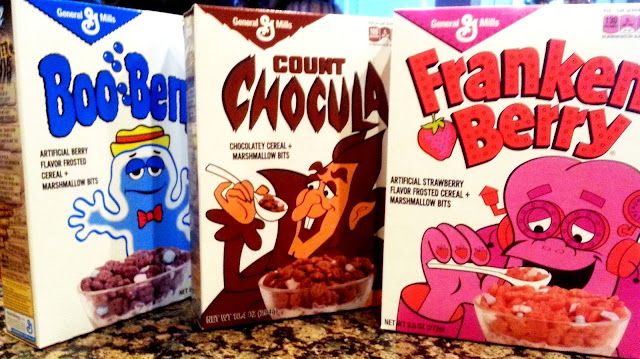
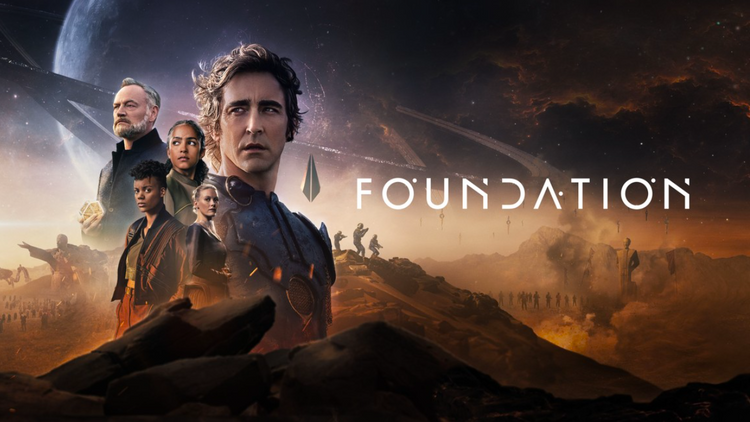
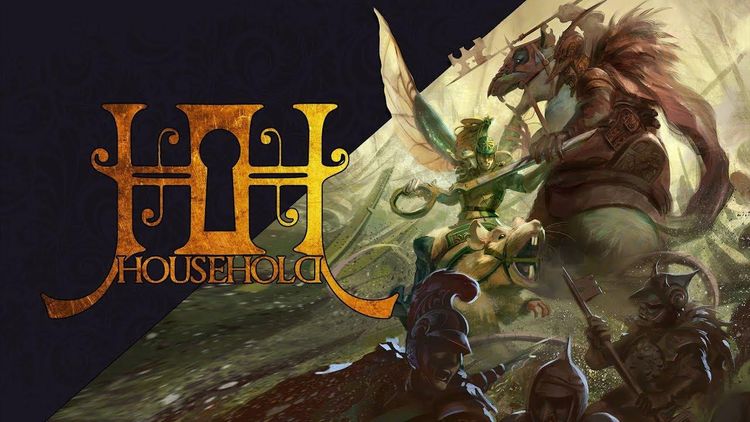
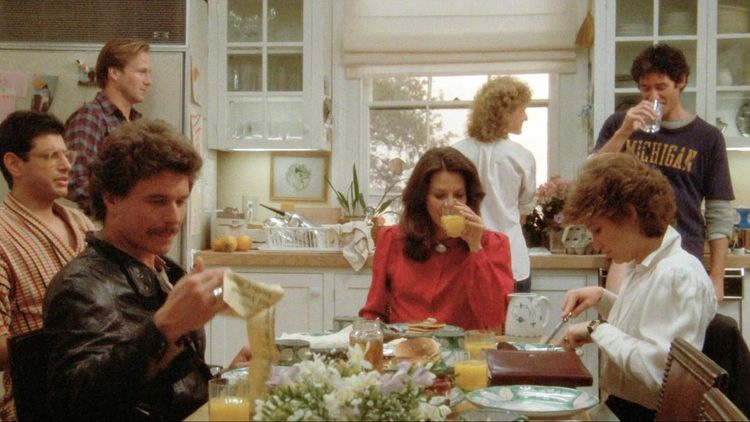
Member discussion